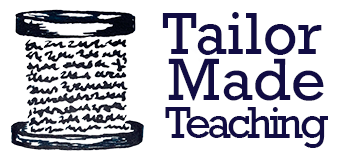
Superstitions and Beliefs in Everyday English
What does this emoji mean to you? 
The number 10 (China).
The person using it is lying. (UK)
A wish for luck. (UK and other English-speaking countries)
An offensive reference to female genitals. (Vietnam)
Superstitions and Beliefs.
You may not be a superstitious person but there are certain phrases based on superstations and beliefs that have become a part of everyday speech and not knowing their meaning can lead to confusion!
Good Luck
‘Fingers Crossed’
In English using the gesture can be either a wish for luck or (when done behind your back) a sign that you’re telling a ‘white lie’. Saying the words ‘fingers crossed’ or ‘cross your fingers’ or ‘keep your fingers crossed’, indicates that you’re hoping for luck or wishing someone else luck.
A: I’ve got a test tomorrow.
B: I’m sure you’ll pass. I’ll keep my fingers crossed for you.
Further examples here.
‘Break a Leg’
It’s supposed to be bad luck to say ‘Good luck’ in a theatre. To wish someone luck before they go on stage, you should say, ‘Break a leg’. Apparently, some native speakers don’t understand the meaning of this.
A: I’ve got a part in a new play. We’re opening tonight.
B: Break a leg!
The third video here is an example of using the phrase in this way.
‘Beginner’s Luck’
People say this when someone who hasn’t done something before, does it well. It implies that their success is due to luck and not skill or experience.
A: Ha ha, I won!
B: Pah! Beginner’s luck!
Further examples here.
Bad Luck
‘Bad Luck’
If someone says ‘Bad luck’ to you, it’s not that they’re wishing you bad luck. It’s sympathetic.
A: I didn’t get that job.
B: Oh no! Bad luck. Better luck next time!
Further examples here.
‘Touch Wood’ / ‘Knock on Wood’
These phrases are used to ward off bad luck (to prevent bad luck), if someone’s said something they don’t want to happen. It’s usually used humorously. Not everyone actually touches or knocks on wood when they say it.
A: I’ve never been in a car accident. Touch wood.
In some countries they say ‘Touch iron’.
Further examples here and here.
‘Don’t Jinx it’
This is usually used when someone says something optimistic or confident about a future event. Another person will say it to stop the speaker inviting bad luck by being overly confident.
A: I think we’re going to win the game tonight.
B: Don’t jinx it!
Further examples here.
‘Don’t Tempt Fate’
This is another way of saying ‘Don’t jinx it’.
Further examples here.
‘The Scottish Play’
This is another theatrical term. Actors think it’s unlucky to say the word ‘Macbeth’ in a theatre (when talking about Shakespeare’s play, Macbeth). So, in a theatre, they will refer to it as ‘The Scottish Play’.
A: I have a part in The Scottish Play.
B: Is it the leading role?
Further examples here.
‘An albatross (around your neck)’
This phrase comes from the poem, ‘The Rime of the Ancient Mariner’ by Samuel Taylor Coleridge. In the poem, the Ancient Mariner (a sailor) shoots an albatross. Sailors believe it is very bad luck to kill an albatross, so they hang the bird around the sailor’s neck as a reminder of his guilt. We use the phrase now to describe a difficult situation or responsibility that someone created and must live with, and which causes trouble for them.
A: Are you paying off that bank loan?
B: Yep, it’s an albatross around my neck!
Further examples here.
Others
‘Speak of the Devil’
This is used humorously. It’s said if you’re talking about a person and suddenly they appear.
A: Tom was talking about you the other day.
B: Oh, what was he saying?
(Tom arrives)
A or B: Oh, speak of the devil!
Tom: What were you saying about me?
Further examples here.
‘Speak of Angels’
This is a nicer way of saying ‘Speak of the Devil’. It’s not used much, it may be an Irish phrase (or just my family).
‘Cross my heart (and hope to die)’
This is used to make a promise or assure someone that you’re telling the truth. Children often use a rhyme like ‘Cross my heart and hope to die, stick a needle in my eye’. It’s more often reduced to ‘Cross my heart’.
A: Are you telling me the truth?
B: Cross my heart!
Religious Belief
There are lots of idioms in English based on the Bible. These two phrases are particularly common, so common people forget their Christian origins.
‘Bless You’
This is said when someone sneezes. It’s basically asking God to bless you, so you won’t get dangerously ill.
A: Atishoo
B: Bless you!
‘Goodbye’
This comes from the phrase, ‘God be with you’ – try saying it very very fast.
Can you think of any confusing phrases based on superstition or belief that you’ve found in English? Do you use similar phrases to these in your first language? Let me know!
If you’re interested in English superstitions, have a look at this blog post.
If you want to know more about how to use YouGlish, which most of the links in this post link to, have a look at this blog post.


